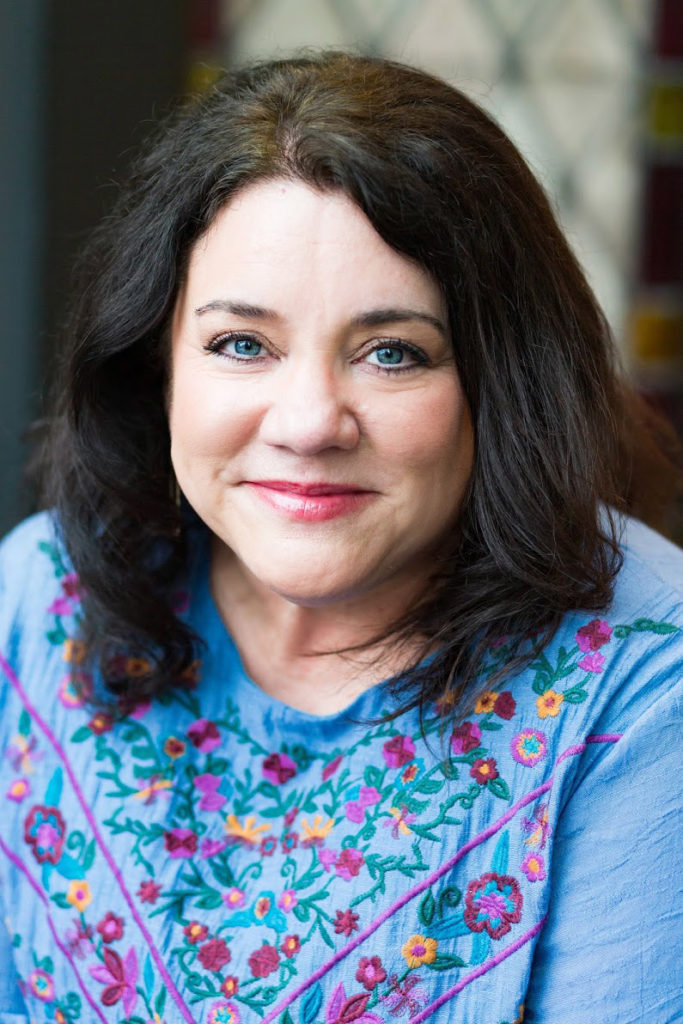The year 2020 has not quite been what I envisioned. The new year began full of celebration with our thirtieth wedding anniversary in January and planning a summer wedding for our oldest daughter. In February, I started a new role at work, which I love, and I spent time with extended family. Could this year get any better?
But hardships and grief are unpredictable. Life started to change. A pandemic . . . things only seemed to grow worse. We rescheduled bridal showers, experienced social distancing restrictions, and worked from home. However, April reset our lives. My sweet mom, who lived with us, went to the hospital, experienced a heart attack, and within forty-eight hours, she had gone home to heaven. Nothing from that point forward seemed as tragic as losing my mom—knowing she was alone as she died. Everything was on pause including her memorial service. What do you do with overwhelming, delayed grief?
The year has held a strange feeling for me—waves of fear, forgetfulness, uncertainty—and my constant companion, grief. Don’t get me wrong, I’ve had other times of grief in my life—miscarriage, loss of loved ones, breast cancer, job changes, moves that required leaving dear friends—but any other sadness or disappointment gradually seemed to get better over time. Day by day hope would grow. However, this time, recovering has taken much longer than I ever expected as I’ve grasped for God to pull me from this deep, dark chasm of grief. My heart will ache or I have no energy. There are tasks I simply don’t want to do, and I’m not sure why. Often I will feel like I can’t do a certain task without falling apart. I can’t blame all my sadness and grief on COVID, but it sure hasn’t helped the situation. During weddings, funerals, and illnesses when I most need community and to be near those I love, I can’t.
As I’ve navigated this journey, I’ve been reminded of some truths and learned some new things. If you are experiencing your own grief due to the changes as a result of COVID, loss of someone you love, the heartaches of canceled plans and injustice, job loss, illness, or loneliness, I hope these truths will encourage you.
- Grief is unique for each person.
I’ve been told that each experience of grief is unique, and that grief is unpredictable. Although you can sympathize with others, you can’t really share the pain, weakness, or fear they feel. It is hard to explain how, at any moment, memories rush in and your coping mechanisms fall apart. In Job 6:2 he lamented, “If only my grief could be weighed and my devastation placed with it on the scales” (CSB). If only we could have a way to measure our grief—but its weight changes daily as we grieve.
- Grief is change.
In A Grief Observed, C. S. Lewis writes, “I know that the thing I want is exactly the thing I can never get. . . . Reality never repeats. The exact same thing is never taken away and given back.”1 What I mourn and miss will never be returned to what it once was. My grief will ebb and flow, but there is nothing I can do with the loss except to continue grieving and suffer through it. My hope has been that we know a God who does not change. “Jesus Christ is the same yesterday and today and forever.” (Heb. 13:8, CSB). As everything changes around us in this world, God is constant.
- Grief is universal.
Although no one experiences grief and sorrow in exactly the same way, bereavement is an integral part of life. Just as we learn to love and live life with others in community, we learn a shared sorrow and experience grief together. No one will be exempt. People look to others to help them understand disappointment and discouragement. We have a deep desire to share our pain. In addition to God, we seek those who can comfort and walk beside us and carry our burdens (2 Cor. 1:3-5). When your whole way of life has changed, you are drawn to others who will help you navigate the confusion.
- Grief is deep.
I’ve heard that the greater the love, the deeper the grief. I’m not sure that I totally agree, but I have discovered there are various layers of grief. One person might grieve a job loss differently from another person depending upon the actual work, relationships with coworkers, and community. Introverts may not feel the same level of loneliness during isolation due to COVID, while extroverts may grieve more for the loss of community. But make no mistake, grief is a deep emotion that can be felt as strongly as anger, hatred, or love. Grief is more often a deep, multi-layered process that takes time to dig out of.
- Grief can only be lifted by a good God.
Some might disagree with me on this, and I do know that family and friends can bring great comfort. But I know in my sorrow that God has lifted my exhaustion and helped me to see more clearly as my eyes were blurred with tears. He is present when no one else is around—through long days and the darkest nights when you cannot sleep. He has been ever-present as I’ve cried for help and received His care (Ps. 40). He has been good in spite of the bad in the world. The emotional transition from grief will not be quick, but God is constant and faithful. Ultimately, I need Jesus, and not just those who resemble Him.
In the past, people would wear mourning clothes—sometimes for years. I can now understand why. Grief is an intimate and messy journey. Grief can physically manifest through sleep loss, stress, a weakened immune system, and illness. The sorrow in grief can impact you mentally and emotionally in ways you never dreamed. I’m not sure what the remainder of 2020 will bring. I do know the best and most helpful thing I can do, as I continue to grieve and handle the changes, is lean into the Lord—to trust God with each day, to spend time in His Word, and pray that He continues to demonstrate how constant and faithful He is in these uncertain times.
I’d love to hear how you have dealt with grief in your own life. What is your story? How have you experienced God’s presence during the uncertainty of 2020?

Michelle Hicks is the managing editor for Journey devotional magazine with Lifeway Women. Michelle served as a freelance writer, campus minister, and corporate chaplain before coming to Lifeway. She is a graduate of the University of North Texas and Southwestern Baptist Theological Seminary. Michelle has a deep hunger for God’s Word and wants others to discover the abundant life they can have with Jesus as their Lord and Savior.
C. S. Lewis, A Year with C. S. Lewis: Daily Readings from His Classic Works, from A Grief Observed (San Francisco: Harper Collins, 2003), 214.

